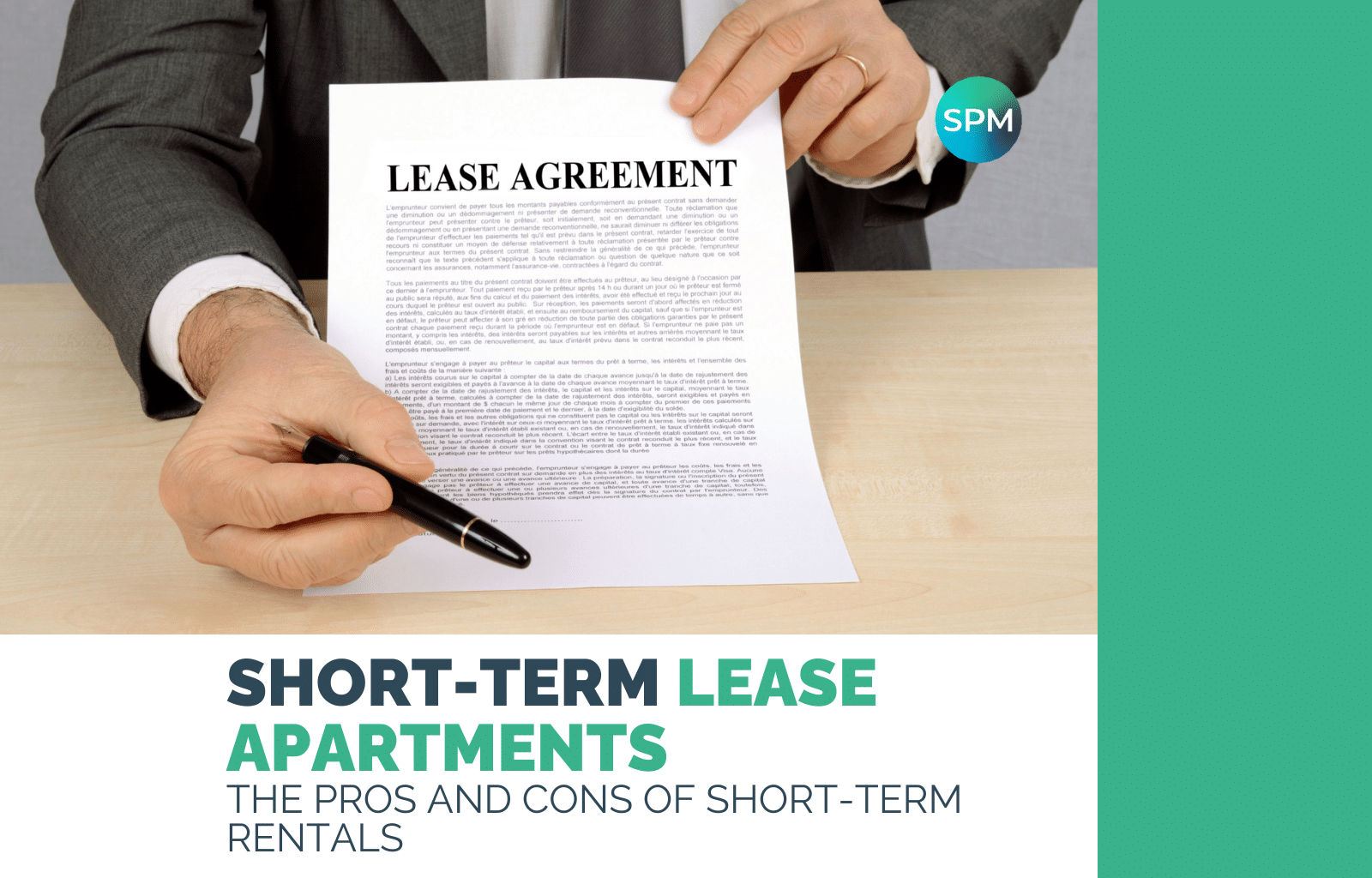Short-Term Rentals
Someone may be unemployed or deciding on moving to a different city after completing their education. In contrast, others might just want to try a new neighborhood. There can be several reasons why people prefer short-term lease apartments over long-term. But the number one reason is flexibility.
A short-term lease is typically less than six months and can be renewed monthly. Short-term rentals provide many benefits, but they also have some drawbacks. Some tenants prefer short-term leases because they want the flexibility to relocate, while others prefer long-term leases because they want to secure their rental arrangements.
Read ahead to learn more about the pros and cons of short-term lease apartments.
Pros of Short-Term Lease Apartments
Short-term rentals offer several benefits.
1. Easier Approval
The approval process for short-term lease apartments can be simpler than long-term ones.
2. Cost-Effective
Short-term rentals can have a better ROI for the landlord while actually still costing the tenant less on an annualized basis. The rent will be much higher to benefit the landlord and the tenant if they choose to move within a short-term period will not be obligated to fulfill long-term lease terms or pay exorbitant lease break fees.
3. Flexibility
If you are on a temporary work assignment or expecting to be transferred, a long-term rental with a contract of more than a year might not be worth it. For such individuals, short-term rentals can offer the flexibility to give notice and move when needed.
4. Furnished
Apartments with short-term leases often come furnished. This can minimize moving costs which may justify a higher short-term monthly rent.
Cons of Short-Term Lease Apartments
Now that we know about the advantages, let us review some of the cons of short-term lease apartments.
1. Hard-to-Find
Finding short-term rentals is hard as most landlords prefer long-term contracts to eliminate the hassle of finding tenants within short intervals.
2. Higher Non-Refundable Deposit
Most landlords ask tenants to pay a higher non-refundable deposit as short-term leases are riskier. Vacancy rates are higher in these situations, so landlords look to offset such with as many income options as possible.
3. Higher Rent
Landlords ask for higher rents for short-term rentals in exchange for flexibility.
4. Less Flexibility with the Move-in-Date.
Getting a short-term rental is very difficult since there tends to be fewer options.
5. Less Flexible Move-out-Date.
Landlords tend to be hyper-vigilant about lining up the next Tenant when it comes to short-term rentals so they may require you to move upon your initial lease expiration when you had decided you wanted to stay longer.
Short-Term Rentals – Other Option?
Short-term rentals are often a popular choice for vacation travelers, professionals traveling for business to work on longer-term projects, or even students. For tenants in these situations vacation rentals, business hotels, or dormitory-style housing may be a preferred option.
Short-Term Rentals: Conclusion
Short-term lease apartments can be the best economic option if you want the flexibility to move when you need them. However, you must be ready to pay some extra cash and spend extra time finding these rental opportunities.
For a tenant, we suggest you conduct an online search on one of the larger apartment marketing sites like apartments.com or Zillow beginning in a 3 then 5-mile radius and so forth for your ideal location until you identify apartment communities that offer furnish short-term apartments.
For the landlord, we think if the rental premium is large enough and you have a local economy that supports short-term rentals it might be worth considering offering a few furnished units at your property on a month-to-month lease.
If you are a landlord looking for ways to improve your property performance, get assistance from the Summerfield Property Management team of experts. We can help you maximize the return on your investment (ROI).
Short-Term Rentals: FAQs
Q: What are short-term lease apartments?
A: They are units that are offered for lease periods that are much shorter than typical. They are generally for 1 to 5 months in term.
Q: Are short-term rentals available in New York City?
A: The New York State Multiple Dwelling Law says you cannot rent an apartment in a Class A multiple dwelling for less than 30 consecutive days. Thus, the answer is yes but the minimum lease term is 1 month.
Q: What happens when my short-term lease expires?
A: When your short-term lease expires, you must leave the property unless you sign a lease extension with the landlord.










